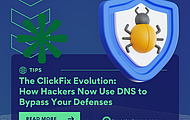Is Your Phishing Training Actually Working? Why Traditional Methods Fail and What Truly Protects Your Business

A recent cybersecurity study has sent shockwaves through the industry, suggesting that traditional phishing awareness training does little to reduce failure rates among employees. At first glance, this finding seems to declare that training is a pointless waste of time and resources. But before you cancel your next security seminar, let’s look closer. The real takeaway isn’t that training is useless—it’s that most companies are doing the wrong kind of training.
A check-the-box strategy is the main problem. Employees click through required, yearly training modules while multitasking in many organizations. These programs frequently use hypotheticals that seem disconnected from an employee's everyday life, general examples, and fear-mongering. This kind of training doesn’t stick because it fails to engage the brain in a way that translates to real-world action. It teaches people to pass a test, not to spot a threat.
The Power of Real-World Simulation
More knowledge isn't the answer to behavior change; experience is. Consider it similar to learning to drive. You can read every handbook ever written, but the only way to learn anything is to get behind the wheel in a safe setting where mistakes are opportunities for growth rather than disasters.
The key distinction between unsuccessful training and an effective strategy is this:
- Inadequate Instruction: A yearly PowerPoint presentation that defines "phishing."
- An industry-specific, simulated, and incredibly realistic phishing email that appears to be from your CEO or a major supplier and unexpectedly lands in your inbox is an example of effective training.
- The failure of a simulated phishing test by an employee generates a potent "teachable moment." A generic lecture would never have the same impact as the instant feedback and coaching that follows—why the email was suspicious, what to watch for next time. It turns cybersecurity into a practical, individual talent rather than just an abstract IT idea.
It’s Not About Training. It’s About the Right Training.
The study's criticism of subpar training techniques is accurate. However, interpreting that to imply that all training is pointless would be a serious error. Moving past one-size-fits-all information and funding ongoing, captivating, and practical security awareness initiatives that include the following is the answer:
- Frequent, Unannounced Simulations: Regular, tailored phishing simulations help staff members stay alert and gradually reinforce lessons learned.
- Establishing a culture that values disclosing possible dangers and views mistakes as teaching moments rather than crimes that need to be punished is known as positive reinforcement.
- Training that is pertinent to particular positions within the organization is known as contextual learning. A phishing attempt directed at a developer will not appear the same as one directed at a finance staffer.
Fortify Your Defenses from the Inside Out
At Bayon Technologies Group, we understand that your employees are your first line of defense, not your weakest link. We agree that generic training is a waste of time. That’s why our approach is different.
We partner with organizations to build a robust human firewall through sophisticated, real-life scenario training that employees actually remember. Our experts know how to craft campaigns that test and teach, fostering a lasting culture of security awareness that adapts to the evolving threat landscape. We don’t just train; we transform employee behavior to create a resilient human layer of defense.
Don’t let a flawed study convince you to abandon your best defense. Let us show you how effective training can truly fortify your company from the inside.
Ready to implement training that actually works? Contact us today for a FREE consultation!
‹ Back







